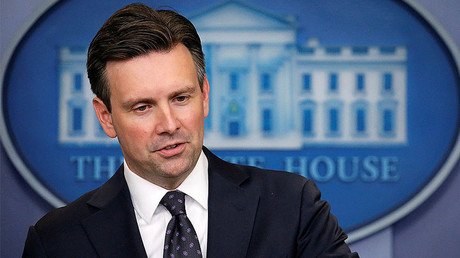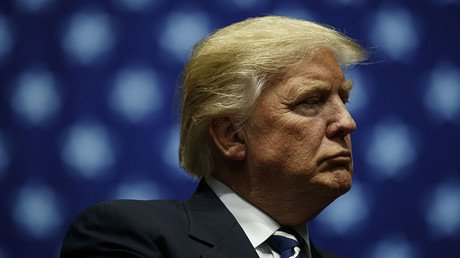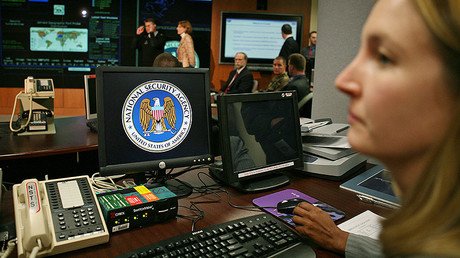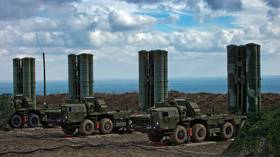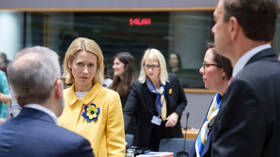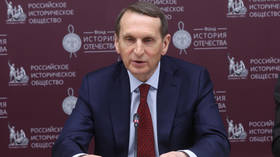Obama vows ‘action’ in response to alleged Russian hacking
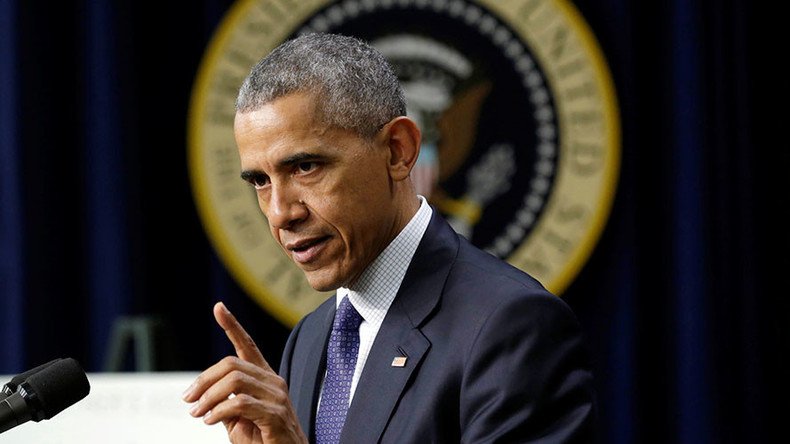
Barack Obama has vowed to take retaliatory measures against Russia, both public and covert, accusing Moscow of compromising the “integrity” of the US elections through the DNC email hacks. US intelligence has yet to provide any evidence of Russian involvement.
"I think there is no doubt that when any foreign government tries to impact the integrity of our elections ... we need to take action. And we will — at a time and place of our own choosing,” President Obama said in an interview with NPR on Friday.
The US leader did not elaborate on whether the steps would be taken in the five weeks he has left in office.
Neither did he specify what type of action might be taken, saying only that “some of it may be explicit and publicized; some of it may not be."
While Obama spoke of the Russian government's alleged role in the hacking of Democratic National Committee (DNC) communications as a proven fact, he fell short of accusing Moscow of purposefully aiding US President-elect Donald Trump without a “final report” from US intelligence agencies.
"And so when I receive a final report, you know, we'll be able to, I think, give us a comprehensive and best guess as to those motivations,” he said.
Obama argued, however, that even without a comprehensive report it should be obvious that “what the Russian hack had done was create more problems for the [Hillary] Clinton campaign than it had for the Trump campaign.”
At the same time, the outgoing president admitted that although the scandal that ensued from the leaks – and the subsequent way it was reported in the media – “had some impact” on the election campaign, “you never know which factors are going to make a difference.”
Earlier, Trump dismissed as a “conspiracy theory” claims made by anonymous CIA officials, and reported by the Washington Post, that Russian intelligence hacked the DNC emails to propel him to the presidency.
Obama was also wary of accusing the Trump campaign of having anything to do with the leaks, refusing to feed into conspiracy theories, while saying that the Republican candidate’s camp had simply exploited the incident to its maximum benefit.
"They understood what everybody else understood, which was that this was not good for Hillary Clinton's campaign," Obama said.
Obama is not the first senior US official to threaten Russia with countermeasures to avenge the alleged hack, involvement in which the Russian government vehemently denies.
Back in October, US Vice President Joe Biden told NBC that Washington would be “sending a message to [Russian President Vladimir] Putin” that “will be executed at the time of our choosing, and under the circumstances that will have the greatest impact.”
At the time, NBC also cited intelligence officials with “direct knowledge of the situation” as saying that the CIA had been ordered to devise a plan for a “clandestine” cyber strike against Russia in order to “embarrass” Moscow. The outlet reported that the agents had already embarked on preparations for a large-scale attack.
On Thursday, “anonymous CIA officials with direct access to information” went as far as to claim that the Russian president himself might have authorized the alleged hacks.
Obama’s deputy national security adviser, Ban Rhodes, reiterated the claims to MSNBC, saying he doesn't think "things happen in the Russian government of this consequence without Vladimir Putin knowing about it."
READ MORE: Briefing blunder: White House press secretary accuses China of DNC hack
These latest allegations were dismissed by Russian Foreign Minister Sergey Lavrov as nonsensical.
"I think that the stupidity and hopelessness of such an attempt to convince people of this is obvious," he said on Thursday.
Veteran Intelligence Professionals for Sanity (VIPS), a group of former CIA and NSA agents, doubt the credibility of this version, adding that “harder evidence of a technical nature” suggests it was an inside job and not a hack by “Russians or anyone else.”
VIPS signed a memorandum published by Consortium news on Thursday. One of the letter’s authors, former NSA technician and whistleblower Bill Binney, told RT that “all points point to leaking, not hacking,” noting that if it was indeed a hack, the NSA would have long ago found a trace route.
Taking into account the scope of the NSA’s “extensive domestic data-collection network” uncovered in Edward Snowden’s revelations, “it beggars belief that NSA would be unable to identify anyone – Russian or not – attempting to interfere in a US election by hacking,” the veterans wrote, adding that such proof, if it existed, could be presented by the NSA “without any danger to sources or methods.”
Binney recalled that on a similar occasion with Chinese hackers, the NSA was able to trace the route of the hack to the specific building from which it was launched, which made him think that the accusations against Russia put forward by military intelligence were politically motivated.
Former UK ambassador to Uzbekistan-turned-WikiLeaks operative Craig Murray also challenged the official US version of events, claiming the source of the hacks was an insider who “had legal access to information.”
“The documents came from inside leaks, not hacks,” he told the Daily Mail, claiming that he himself took part in the handover operation in the woods in northwest Washington DC, where a representative of the source of the leaks allegedly gave him a package with the data.
